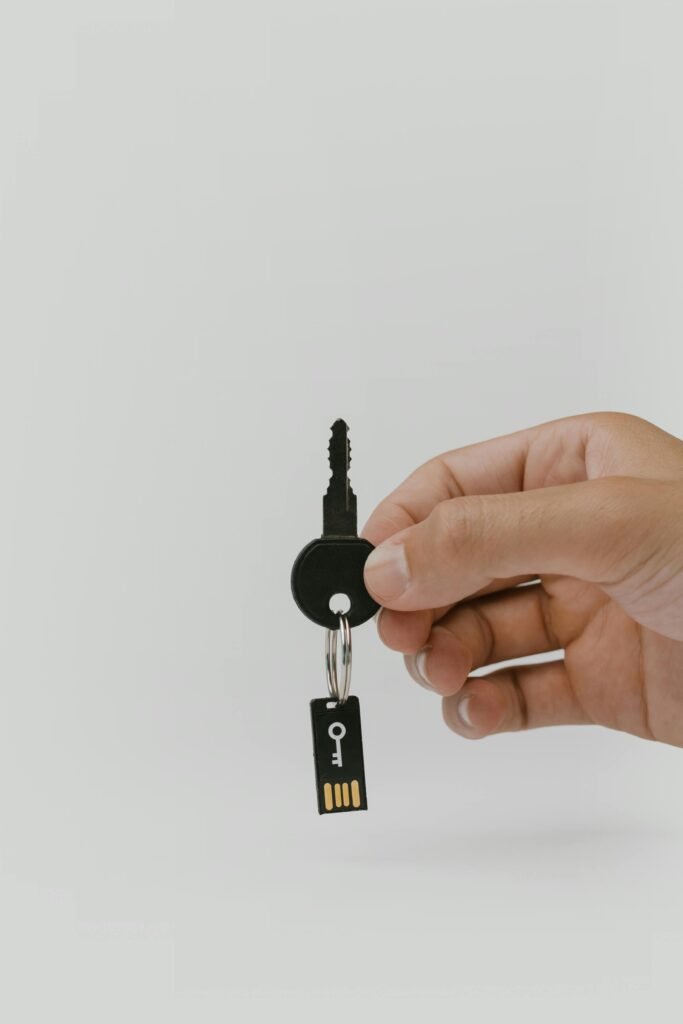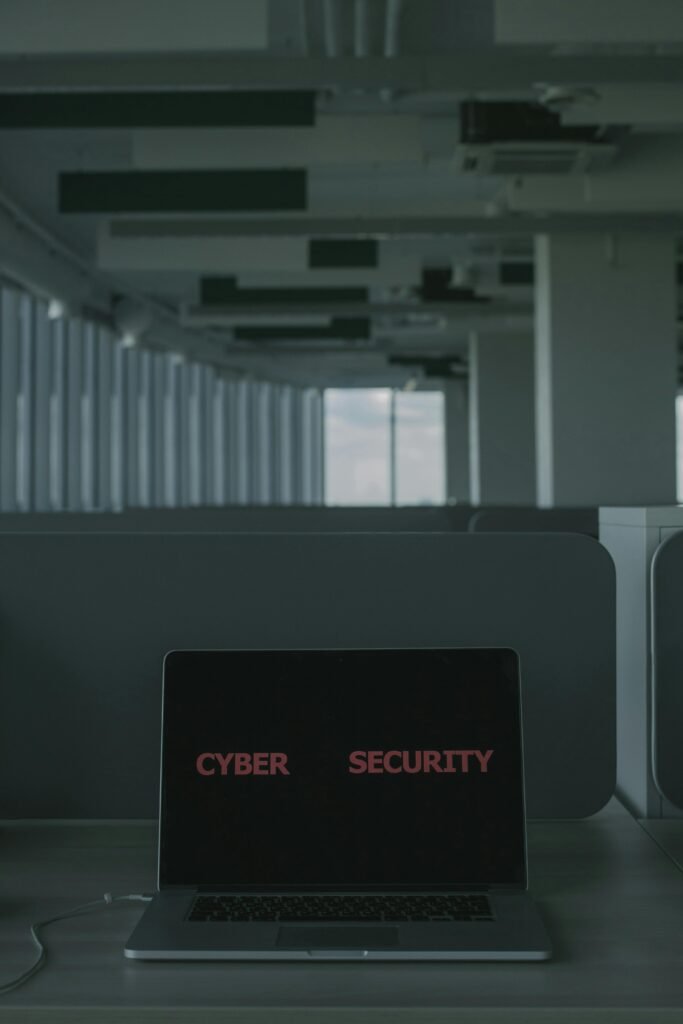Welcome to the world of essential laptop security tips! In this article, you will learn about the best practices to keep your laptop safe and secure from potential threats. From protecting your devices with strong passwords to updating your software regularly, these simple yet effective tips will help you safeguard your valuable information and sensitive data. Stay informed and take proactive steps to enhance your laptop security today!
Essential Laptop Security Tips
Hey there! Are you worried about keeping your laptop safe and secure? Well, you’re in the right place! In this article, we’ll cover some essential laptop security tips that will help you protect your valuable data and personal information. From strong passwords to software updates, we’ve got you covered. So sit back, relax, and let’s dive in!

This image is property of images.pexels.com.
Why is Laptop Security Important?
Before we jump into the tips, let’s first discuss why laptop security is so crucial. Your laptop contains a treasure trove of sensitive information – from personal photos and documents to financial details and login credentials. If this data falls into the wrong hands, it could lead to identity theft, financial loss, and other serious consequences. By following these security tips, you can safeguard your personal information and enjoy peace of mind knowing that your laptop is secure.
Strong Passwords are Key
One of the simplest yet most effective ways to enhance your laptop security is by using strong passwords. A strong password is a combination of letters, numbers, and symbols that is difficult for others to guess. Avoid using common words or phrases, birthdays, or easily guessable sequences. Instead, opt for a mix of characters that only you would know. Remember to change your passwords regularly and never use the same password for multiple accounts.

This image is property of images.pexels.com.
Enable Two-Factor Authentication
Two-factor authentication (2FA) adds an extra layer of security to your laptop login process. With 2FA, you’ll need to provide a second verification method, such as a text message code or biometric scan, in addition to your password. This additional step makes it much harder for unauthorized users to access your device, even if they manage to guess your password. Take advantage of 2FA wherever possible to reinforce your laptop security.
Keep Your Software Updated
Software updates often include essential security patches that fix vulnerabilities and loopholes that hackers could exploit. Make sure to keep your operating system, antivirus software, web browsers, and other applications up to date to stay protected against the latest threats. Set your devices to automatically download and install updates, or regularly check for updates manually to ensure you’re running the most secure versions of your software.

This image is property of images.pexels.com.
Use a Virtual Private Network (VPN)
A Virtual Private Network (VPN) encrypts your internet connection, making it significantly more secure and private. A VPN creates a secure tunnel between your laptop and the internet, preventing hackers or third parties from intercepting your data. Whether you’re browsing the web on public Wi-Fi or accessing sensitive information online, a VPN adds an extra layer of protection to keep your data safe from prying eyes. Invest in a reputable VPN service to safeguard your online activities.
Be Cautious of Phishing Attacks
Phishing attacks are a common tactic used by cybercriminals to trick individuals into revealing sensitive information, such as passwords or credit card details. These attacks often come in the form of deceptive emails, messages, or websites that appear legitimate but are actually designed to steal your data. Be cautious when clicking on links or downloading attachments from unknown sources, and never provide personal information unless you’re certain of the sender’s identity. Stay vigilant and report any suspicious activities to protect yourself from falling victim to phishing scams.
Secure Your Network Connection
Securing your network connection is crucial for maintaining laptop security, especially when using public Wi-Fi networks. Public Wi-Fi hotspots are often unencrypted, making it easy for hackers to intercept your data. Avoid accessing sensitive information, such as online banking or shopping websites, when connected to public Wi-Fi. Instead, use a VPN or connect to a secure network to ensure your data remains private and secure.
Encrypt Your Data
Data encryption converts your information into a secure code that can only be read with the correct decryption key. By encrypting your data, you add an extra layer of protection that prevents unauthorized access to your files and documents. Most operating systems offer built-in encryption tools that you can use to encrypt your data folders or entire hard drive. Take advantage of encryption features to safeguard your confidential information and prevent data breaches.
Backup Your Data Regularly
Backing up your data regularly is essential for protecting your files and documents from unexpected events, such as hardware failure, malware infections, or theft. Consider using an external hard drive, cloud storage service, or backup software to create backups of your important data. Set up automatic backups or establish a regular schedule to ensure that your files are always up to date and accessible in case of emergencies. By having backups of your data, you can quickly recover from data loss and minimize the impact of security incidents.
Secure Physical Access to Your Laptop
While most of the focus is on digital threats, physical security is equally important for protecting your laptop. Keep your device in a secure location when not in use, such as a locked drawer or safe. Avoid leaving your laptop unattended in public places or vehicles, as this increases the risk of theft. Consider using a security cable or lock to tether your laptop to a stationary object, providing an extra layer of protection against theft. By securing physical access to your laptop, you can minimize the risk of unauthorized individuals gaining possession of your device and data.
Educate Yourself on Security Best Practices
Staying informed about the latest security threats and best practices is essential for maintaining laptop security. Take the time to educate yourself on common cybersecurity risks, such as malware, ransomware, and social engineering attacks. Stay up to date with security blogs, news articles, and resources to learn how to protect yourself against evolving threats. By empowering yourself with knowledge, you can make informed decisions and take proactive steps to safeguard your laptop and personal information.
Conclusion
Congratulations, you’ve reached the end of our essential laptop security tips guide! By following these recommendations, you can significantly enhance the security of your laptop and protect your valuable data from cyber threats. Remember to use strong passwords, enable two-factor authentication, keep your software updated, and utilize encryption tools to keep your information safe. Stay vigilant, educate yourself on security best practices, and take proactive measures to ensure that your laptop remains secure at all times. Thank you for reading, and stay safe online!
Remember:
- Strong passwords are key to protecting your data.
- Enable two-factor authentication for an extra layer of security.
- Keep your software updated to patch vulnerabilities.
- Use a VPN to encrypt your internet connection and stay private.
- Be cautious of phishing attacks and avoid revealing sensitive information.
- Secure your network connection, especially on public Wi-Fi.
- Encrypt your data to prevent unauthorized access to your files.
- Backup your data regularly to protect against data loss.
- Secure physical access to your laptop to prevent theft.
- Educate yourself on security best practices to stay informed and protected.
